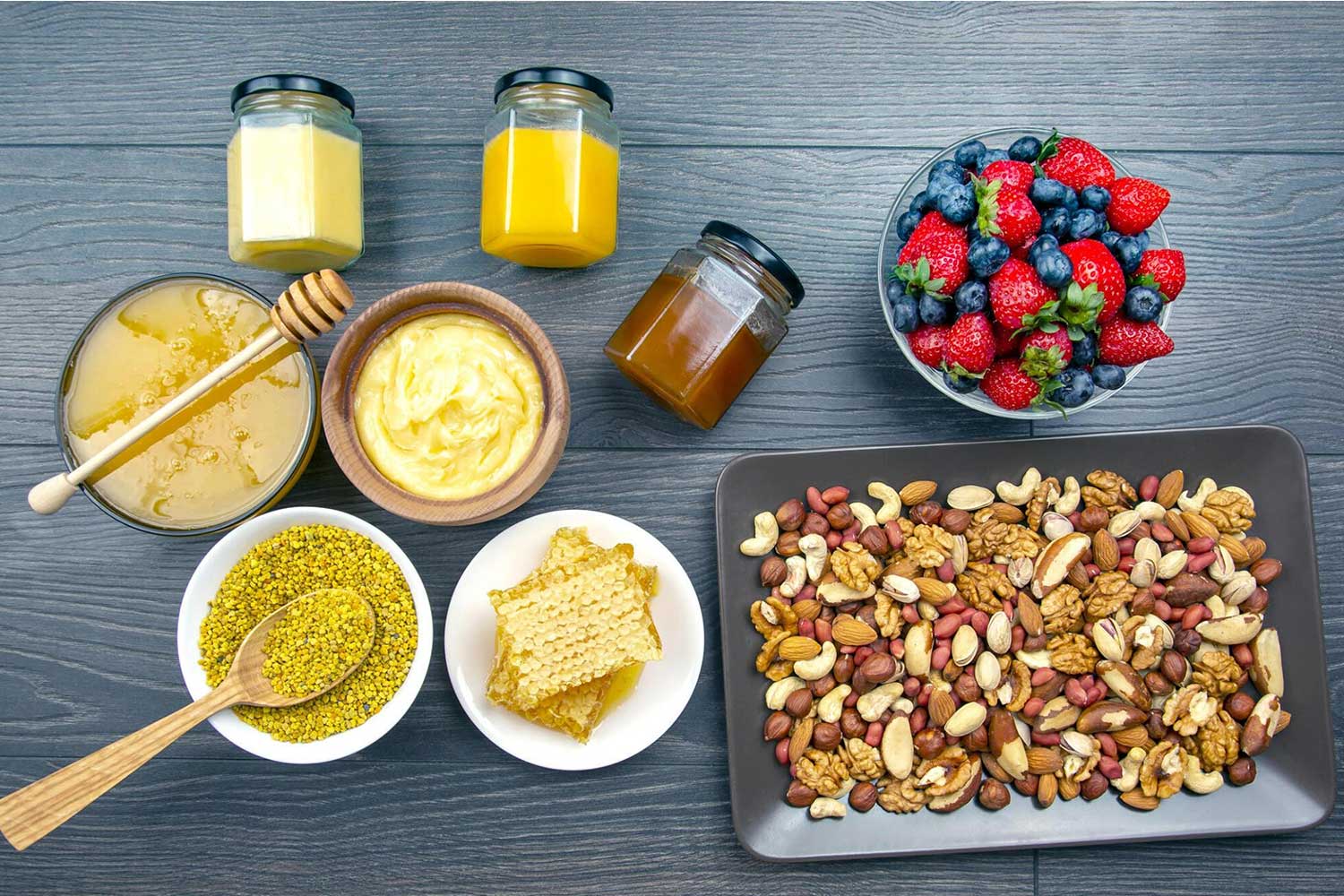
Protein is an essential component of a healthy diet and plays a crucial role in maintaining overall health and well-being. It is important for muscle repair and growth, as well as for a healthy immune system. Understanding the different sources of protein is essential in ensuring a balanced intake. Animal-based proteins, such as lean meats and dairy products, provide a complete range of essential amino acids. Plant-based proteins, like legumes and nuts, are also excellent sources of protein and offer additional health benefits. In this article, we will explore various sources of protein and provide some delicious recipes and tips for incorporating protein into your meals.
The Importance of Protein in a Healthy Diet
Protein is an essential component of a healthy diet and plays a crucial role in maintaining your overall health and well-being. It is important for muscle repair and growth, as well as for a healthy immune system. Without enough protein in your diet, you may experience muscle weakness, fatigue, and impaired immune function. Including adequate amounts of protein in your meals helps to keep you feeling satisfied, supports healthy bone density, and promotes optimal brain function. It is important to prioritize protein in your diet to support your overall health and well-being.
Understanding Different Sources of Protein

When it comes to incorporating protein into your diet, it’s important to understand the different sources available. Animal-based protein sources include lean meats, which are nutrient-rich options that provide essential amino acids. Dairy products are also convenient sources of protein, such as milk, yogurt, and cheese. Plant-based protein sources include legumes, such as beans and lentils, which are excellent sources of protein while also providing fiber. Nuts and seeds are another nutritious addition to your diet, offering protein along with healthy fats. By diversifying your protein sources, you can ensure a well-rounded and balanced diet.
Animal-Based Protein Sources
When it comes to animal-based protein sources, there are two main options to consider: lean meats and dairy products. Lean meats, such as chicken, turkey, and fish, are not only flavorful but also packed with essential amino acids. These nutrient-rich options can be grilled, baked, or roasted to enhance their taste and retain their nutritional value. On the other hand, dairy products like milk, yogurt, and cheese are convenient sources of protein. They can be consumed on their own or incorporated into various recipes, adding a creamy and delicious touch to your meals.
Lean Meats: A Nutrient-Rich Option
Lean meats, such as chicken, turkey, and fish, are an excellent choice for those looking for a nutrient-rich source of animal-based protein. These lean meats are not only flavorful but also packed with essential amino acids that your body needs for optimal health. They are low in fat and high in protein, making them a perfect addition to a healthy diet. You can grill, bake, or roast lean meats to enhance their taste, while still retaining their nutritional value. Incorporate lean meats into your meals to enjoy the benefits of their protein content while satisfying your taste buds.
Dairy Products: A Convenient Source of Protein
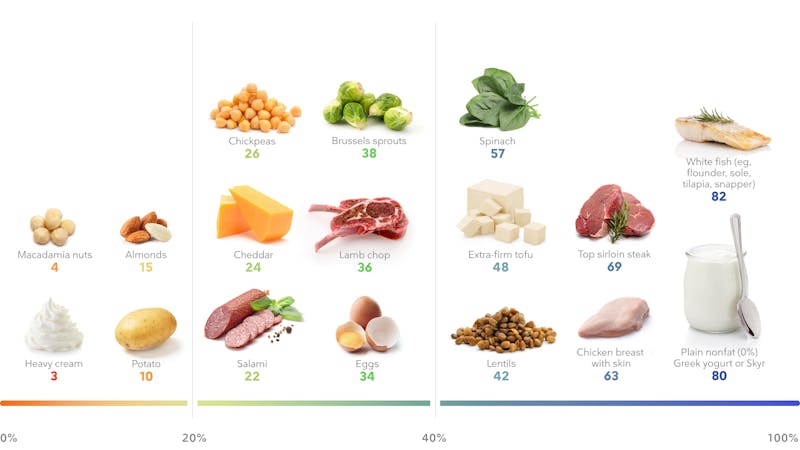
Dairy products, such as milk, cheese, and yogurt, offer a convenient and versatile way to include protein in your diet. These products are not only rich in protein but also contain essential nutrients like calcium, vitamin D, and B vitamins. Additionally, dairy products can be easily incorporated into various recipes, from smoothies and parfaits to salads and pasta dishes. Whether you prefer a glass of milk, a scoop of yogurt, or a slice of cheese, dairy products offer a tasty and nutritious way to meet your protein needs.
Plant-Based Protein Sources
Plant-Based Protein Sources: Legumes, nuts, and seeds are excellent plant-based sources of protein that can easily be incorporated into your diet. Legumes, such as lentils, chickpeas, and black beans, are not only high in protein but also rich in fiber. Nuts and seeds, like almonds, walnuts, chia seeds, and hemp seeds, provide a good amount of protein and healthy fats. You can add these ingredients to salads, stir-fries, or smoothies for a nutritious boost. Including a variety of plant-based protein sources in your meals is a great way to meet your protein needs while enjoying a balanced and healthy diet.
Legumes: An Excellent Source of Protein
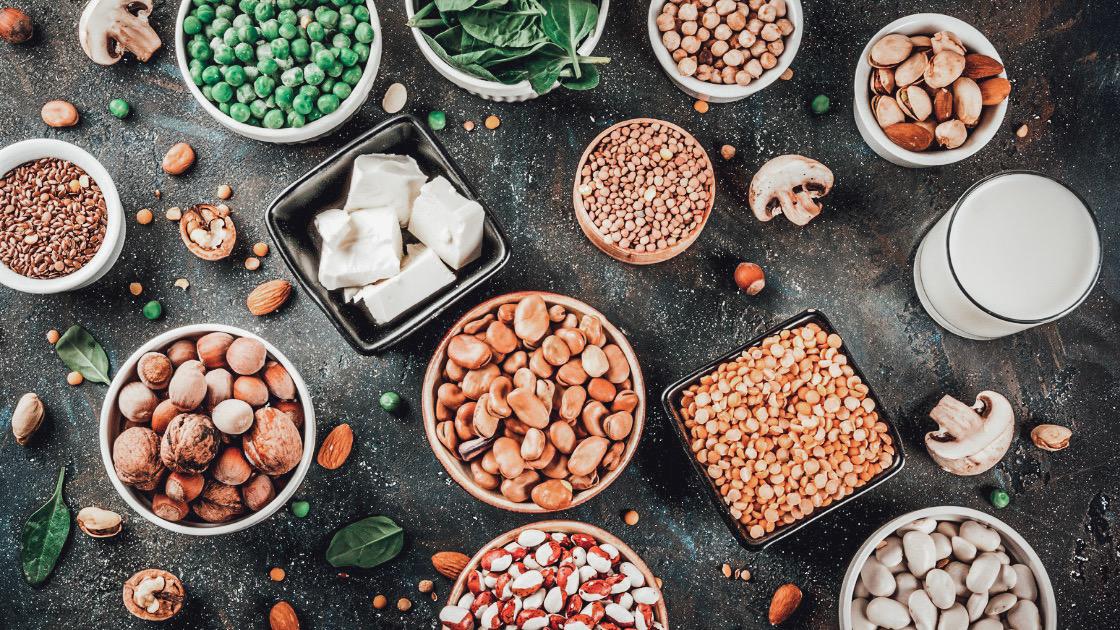
Legumes, such as lentils, chickpeas, and black beans, are an excellent source of plant-based protein. In addition to their protein content, legumes are also rich in fiber, vitamins, and minerals. Incorporating legumes into your diet is a great way to meet your protein needs while enjoying a variety of flavors and textures. You can add cooked lentils to salads, make a delicious hummus with chickpeas, or prepare a tasty black bean dip. Experimenting with different legumes will not only provide you with protein but also contribute to a well-rounded and nutritious diet.
Nuts and Seeds: A Nutritious Addition to Your Diet
Nuts and seeds are a nutritious addition to your diet. They are not only packed with protein but also contain essential vitamins, minerals, and healthy fats. Incorporating a variety of nuts and seeds into your meals can provide numerous health benefits. Walnuts, almonds, chia seeds, and flaxseeds are excellent choices. You can sprinkle them on top of your salads, add them to smoothies, or simply enjoy them as a snack. Including nuts and seeds in your diet can help boost your protein intake while providing additional nutrients.
Protein-Rich Recipes

Protein-Rich Recipes:
Including protein-rich recipes in your diet is a great way to meet your daily protein needs. Here are some delicious and nutritious recipe ideas:
- Protein-Packed Salad Recipes:
- Grilled Chicken Salad: Toss grilled chicken breast with mixed greens, cherry tomatoes, cucumber, and a sprinkle of feta cheese.
- Quinoa and Chickpea Salad: Combine cooked quinoa, chickpeas, diced vegetables, and a lemon vinaigrette for a filling and flavorful salad.
- Delicious Protein Smoothie Recipes:
- Berry Protein Smoothie: Blend Greek yogurt, mixed berries, spinach, and a scoop of protein powder for a refreshing and protein-packed smoothie.
- Peanut Butter Banana Smoothie: Blend frozen banana, peanut butter, almond milk, and a scoop of protein powder for a creamy and satisfying smoothie.
These recipes are not only delicious but also provide a healthy dose of protein. Enjoy them as a meal or snack to fuel your body and support overall health and wellness.
Protein-Packed Salad Recipes
Including protein-packed salad recipes in your diet is a great way to add variety and nutrition to your meals. Here are a couple of delicious options:
- Grilled Chicken Salad: Toss juicy grilled chicken breast with a mix of fresh greens, cherry tomatoes, cucumber slices, and a sprinkle of crumbled feta cheese. Drizzle with a tangy balsamic vinaigrette for a satisfying and protein-rich salad.
- Quinoa and Chickpea Salad: Combine cooked quinoa, protein-rich chickpeas, diced vegetables like bell peppers and red onion, and a zesty lemon vinaigrette. This salad is not only packed with proteins but also provides fiber and other essential nutrients.
Delicious Protein Smoothie Recipes
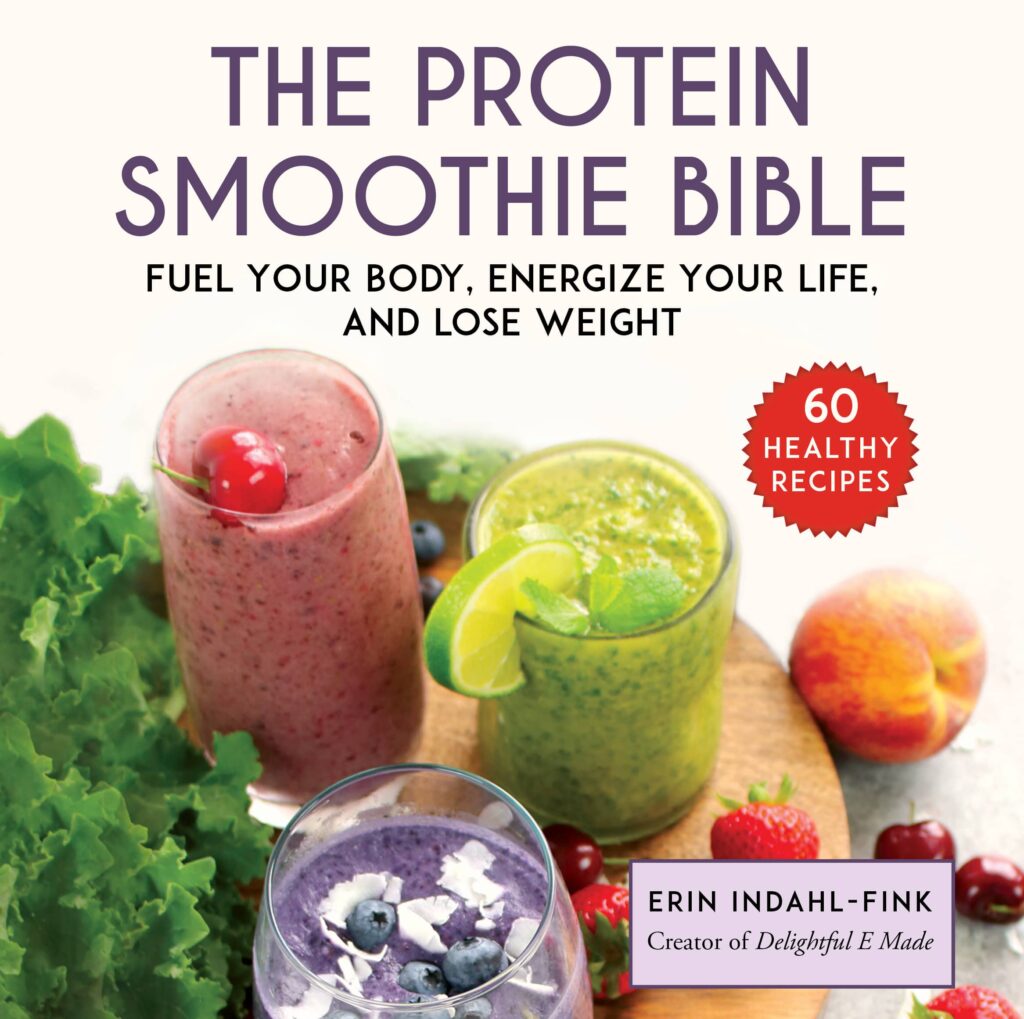
Looking to add more protein to your diet in a tasty and refreshing way? Try these delicious protein smoothie recipes that are not only packed with protein but also full of flavor:
- Berry Blast Smoothie: Blend together a cup of mixed berries, a scoop of vanilla protein powder, Greek yogurt, almond milk, and a handful of spinach for a nutritious and colorful smoothie.
- Peanut Butter Banana Smoothie: Combine a ripe banana, a tablespoon of peanut butter, chocolate protein powder, almond milk, and ice for a creamy and indulgent smoothie.
- Green Power Smoothie: Blend together a handful of kale or spinach, protein powder, a frozen banana, almond milk, and a tablespoon of almond butter for a nutritious and energizing green smoothie.
- Tropical Paradise Smoothie: Blend together frozen pineapple, mango, a scoop of vanilla protein powder, coconut milk, and a squeeze of lime for a refreshing and tropical smoothie.
These protein-packed smoothies are not only delicious but also provide the essential nutrients your body needs. Enjoy them as a post-workout snack or a quick on-the-go breakfast option.
Protein Supplements
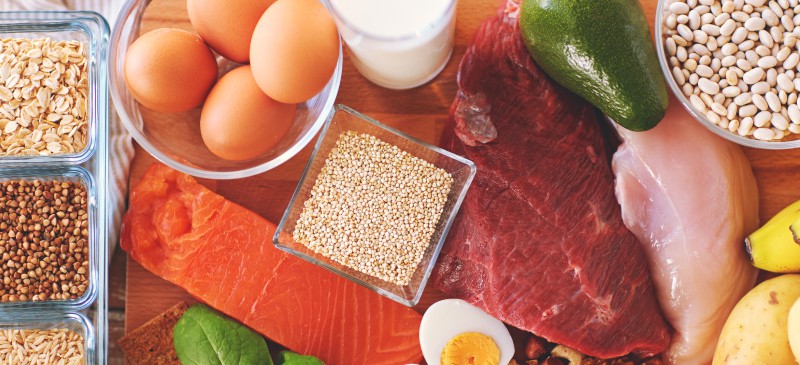
Protein supplements can be a convenient way to ensure you’re getting enough protein in your diet, especially if you have increased protein needs or find it difficult to meet your daily requirements through food alone. Protein powders, such as whey, casein, and plant-based options like pea or soy protein, are popular choices. They are easy to mix into smoothies or shakes, providing a quick and concentrated source of protein. Protein bars are another convenient option, offering a portable and satisfying snack. When choosing protein supplements, be sure to read labels and opt for products with minimal added sugars and artificial ingredients.
Understanding Protein Powders: Types and Benefits

Protein powders are a popular choice for those looking to increase their protein intake. There are different types of protein powders available, including whey, casein, and plant-based options like pea or soy protein. These powders are easy to mix into smoothies or shakes, offering a quick and concentrated source of protein. They are beneficial for muscle recovery, supporting weight management, and enhancing athletic performance. When choosing protein powders, look for products with minimal added sugars and artificial ingredients. It’s also important to consider any dietary restrictions or intolerances when selecting the right protein powder for you.
Protein Bars: A Convenient On-the-Go Snack
Protein bars are a convenient and portable snack option for those who need a quick and effective source of protein on the go. These bars are typically made with a combination of protein powder, nuts, seeds, and other nutritious ingredients. They provide a concentrated source of protein, making them ideal for post-workout recovery or as a mid-afternoon pick-me-up. Protein bars come in a variety of flavors and brands, so you can easily find one that suits your taste preferences. Just make sure to choose bars with minimal added sugars and artificial ingredients to maximize their nutritional benefits.
Conclusion
Incorporating protein into your diet is essential for overall health and wellbeing. Whether you choose animal-based or plant-based sources, there are plenty of options to meet your protein needs. Protein-rich recipes like salads and smoothies can add variety to your meals while keeping you satisfied. Additionally, protein supplements like powders and bars can provide a convenient and portable snack option. Remember to aim for a balanced protein intake and consider individual dietary needs when planning your meals. With the right choices and mindful consumption, you can enjoy the benefits of protein and support your overall health.
Achieving a Balanced Protein Intake
:max_bytes(150000):strip_icc()/GettyImages-1145581060-c6f3afa5f308461cab0a77d79a51c68a.jpg)
To achieve a balanced protein intake, it is important to consider your individual dietary needs. Aim for sources that provide both complete and incomplete proteins to ensure you are getting all the essential amino acids your body needs. Incorporate a variety of animal-based and plant-based protein sources into your meals and snacks. For example, include lean meats like chicken and turkey, as well as legumes and nuts. It is also important to consider portion sizes and distribute your protein intake evenly throughout the day. Consulting with a registered dietitian or nutritionist can help you create a balanced meal plan that meets your protein needs.
Tips for Incorporating Protein into Your Meals
When it comes to incorporating protein into your meals, here are some tips to keep in mind:
- Plan your meals: Take the time to plan out your meals for the week, ensuring that each one includes a good source of protein.
- Meal prep: Prepare protein-rich foods in advance, such as marinating and cooking chicken breasts, so they are ready to be added to salads or grain bowls.
- Get creative with recipes: Explore different recipes that incorporate protein sources, such as grilled fish, tofu stir-fries, or chickpea curries.
- Use protein-rich ingredients as the base: Start with protein-rich ingredients like lean meats, legumes, or eggs and build your meals around them.
- Opt for lean protein options: Choose lean cuts of meat, poultry without the skin, and low-fat dairy products to keep your protein intake healthy.
- Include a variety of protein sources: Mix it up by including both animal-based and plant-based sources of protein in your meals, such as beans, lentils, nuts, and seeds.
- Add protein to snacks: Snack on protein-rich foods like Greek yogurt, boiled eggs, or protein bars to keep your energy levels up throughout the day.
Remember, a balanced protein intake is key to a healthy diet, so be sure to spread your protein consumption evenly throughout the day.

